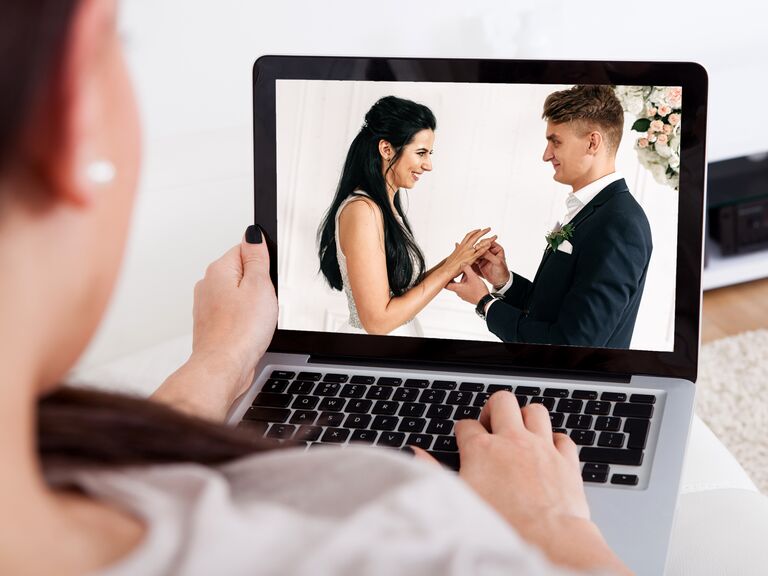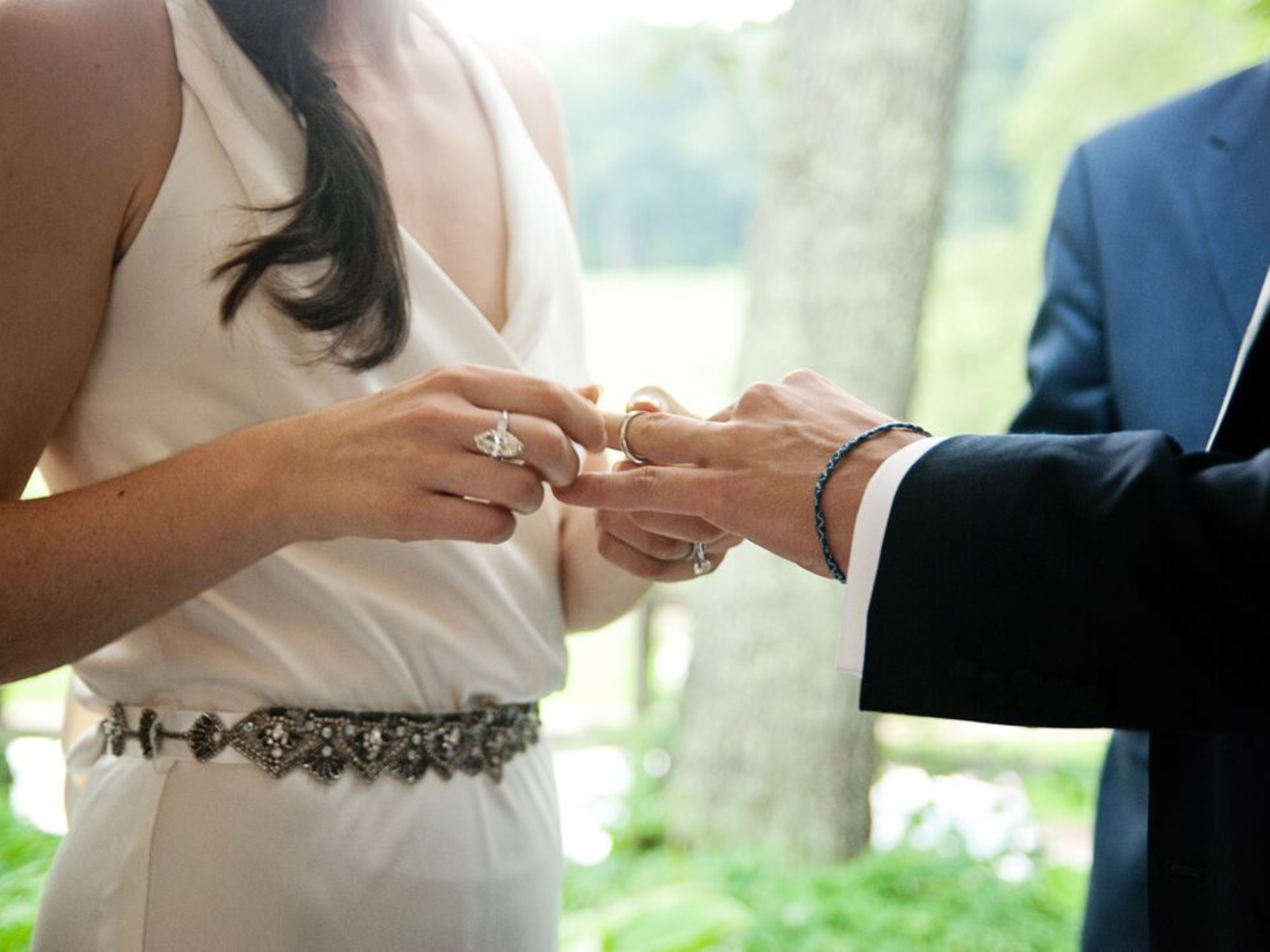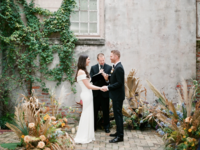What's a Commitment Ceremony and Here's Why It Matters

The ongoing coronavirus pandemic has thrown many of life's biggest milestones for a loop, and weddings are no exception. Still, couples who were set to wed this spring are finding new and creative ways to have virtual ceremonies from the comfort of their own homes until they can host a formal wedding celebration down the line.
The only problem is that it can oftentimes be unclear whether or not these so-called "Zoom weddings" are legally binding. (Zoom being the platform of choice for many couples, though other platforms, like Skype, Google Hangouts, and FaceTime have also been in high demand.) "The big issue here is that this is a legal grey area," Natasha Anakotta, Outreach and Operations Manager for American Marriage Ministries, tells The Knot. "Marriage laws can be confusing even under normal circumstances, and they are further complicated by the fact that they haven't been updated to reflect current technological capabilities."
Enter the 'Commitment Ceremony'
Still, couples are opting for virtual commitment ceremonies to mark their original wedding dates. A commitment ceremony is more of a pact between couples (currently while abiding by the CDC's call for continued social distancing) to someday marry officially down the line.
"We want our couples, if at all possible, to consider getting married on their original wedding date and streaming it to their friends and family," says wedding planner Amy Shey Jacobs of Chandelier Events. "However, legally, where you cannot now get a marriage license, this may be more ceremonial. Also, you still need to be married legally by a legal officiant… However, you can certainly continue with a live-streamed 'commitment ceremony.'"
Some are exchanging vows in an impromptu living room ceremony, while others have employed certain vendors (like their photographer or a pastry chef) to provide key elements for their own celebrations at home. They'll call in their loved ones via video chat to pass the original date in a way that is theirs to remember for decades to come. Regardless of legality, these to-be-weds are committing to each other in this uncertain time.
They might be reciting ceremony vows in their commitment ceremony, where they promise to patiently endure this time together until their larger wedding ceremony down the line. (At The Knot, we call this a sequel wedding.)
When to Make Your Partnership Legal
Generally speaking, Anakotta says, it's important for couples to research the marriage laws and policies of their particular regions, so they're not surprised after the fact.



"We're not saying it's flat out illegal across the board, but we are saying that because marriage laws and officiant registration requirements vary drastically from state to state (sometimes even county to county)," she adds. "Couples really must proceed with caution and do additional research. It is possible that some offices will make exceptions on a case-by-case basis, given the current state of affairs, but couples should not assume that internet weddings will be considered valid according to their local marriage laws."
According to US law, in most cases, couples have to be physically present with their officiant (who should, of course, stand a respectful six feet away from the to-be-weds) in order for a wedding ceremony to be legally recognized. The only other option that is available under current law is for couples to wed in a proxy wedding, which requires someone else to stand in for the missing party to recite vows (many military couples may be familiar with the term, as it is often used when a spouse is deployed overseas or the like).
Furthermore, there are currently only four states that offer the option of proxy weddings: California, Texas, Montana, and Colorado, meaning that if couples are located outside of these four states, legally recognized proxy weddings are not available to them.
Ways to Throw a Commitment Ceremony
Which is not to say, however, that couples couldn't potentially get married during the pandemic. Outside of asking an ordained friend to officiate an intimate wedding from a fifth story walk-up or on an isolated rooftop, couples can ask an officiant to perform a low-key wedding in a public space with several dozen strangers as witnesses. Or to officiate from a safe six-foot distance in a beautiful outdoor setting.
"I officiated a wedding on my front porch with the bride and groom and three others socially distanced with their family watching over FaceTime," longtime officiant and owner of Make It Official Suzane Shelden tells The Knot. "It was very emotional and everyone cried. The bride and groom had to travel to three different counties just to get a license because all the local counties were closed."
Shelden adds that two important things to consider when thinking about getting married during the pandemic is "the size of the guest list" and whether to hold the ceremony outdoors or indoors.
"I would recommend outdoors for better airflow," she says. "And possibly doing an elopement ceremony with a big reception once the pandemic is over."
Says Anakotta, "More than anything, we want couples to be informed and make sound decisions at this time."




















